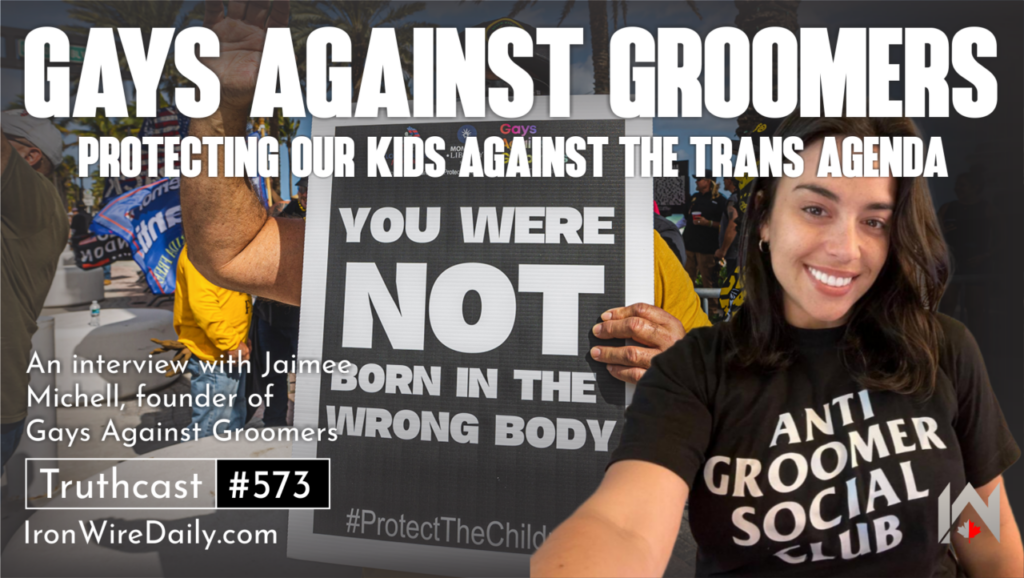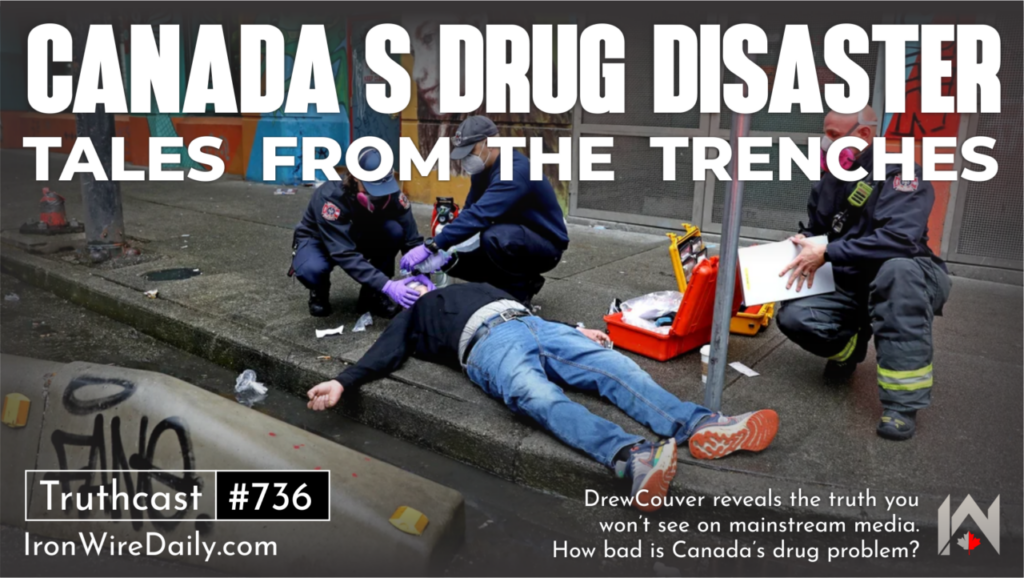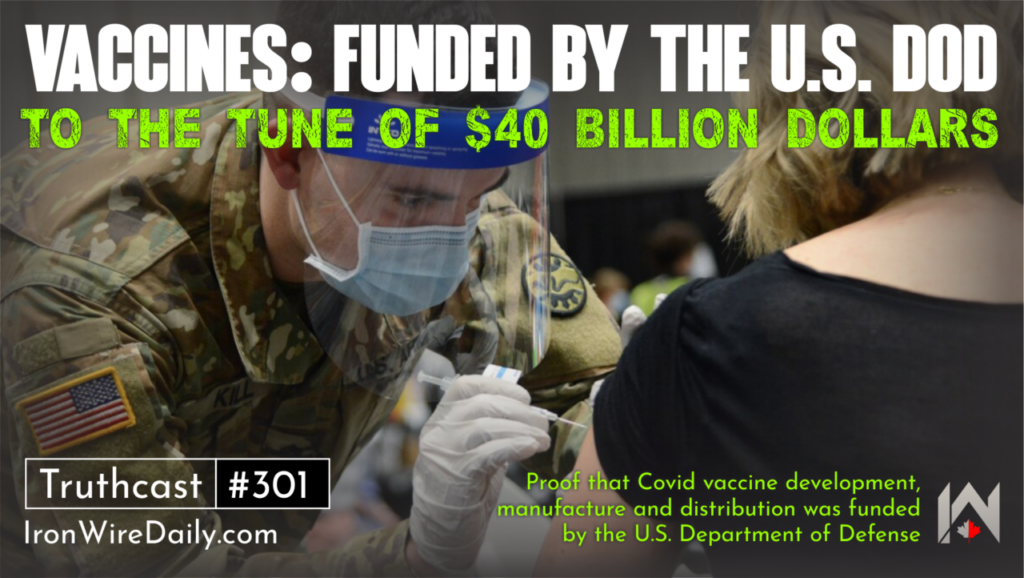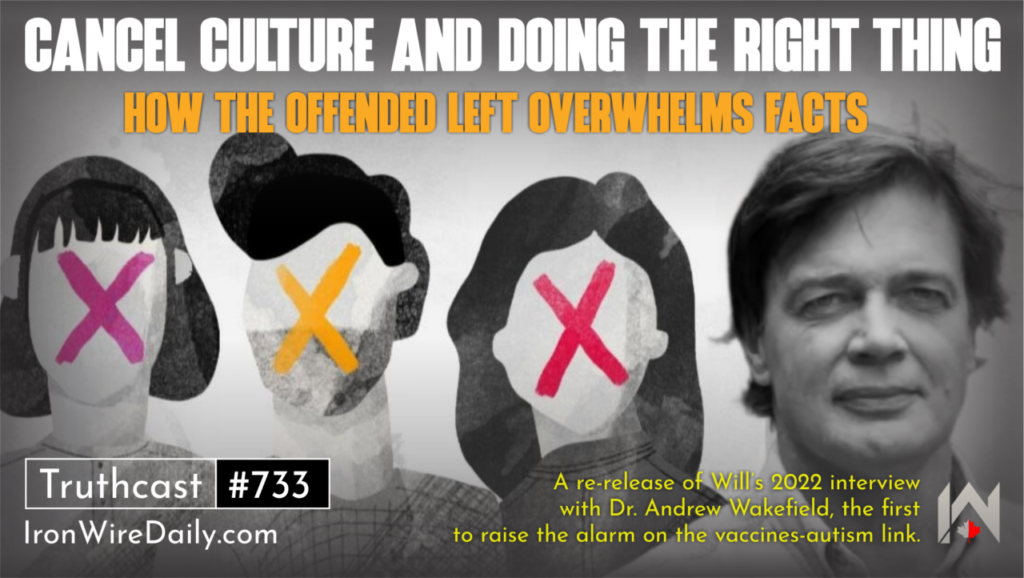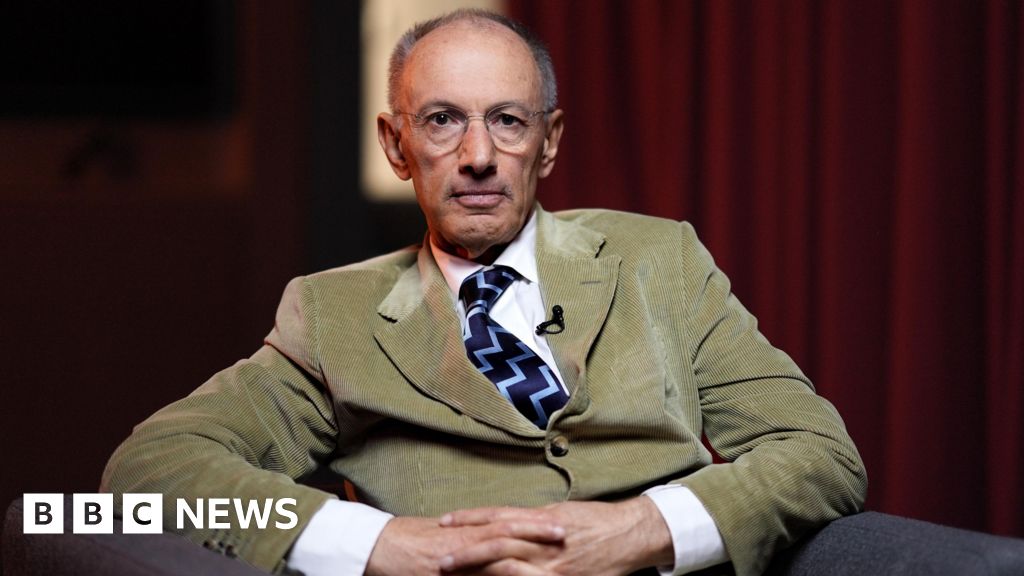$170 Million in Damages: Class Action Suit Against the CPSO |
Scarlett Martyn
During the Covid plandemic, Colleges of Physicians and Surgeons and Public Health Officers across Canada persecuted health care workers who refused to take the Covid shots. In Ontario, this affected many thousands of doctors, nurses, paramedics and other health care workers – many of whom are still not back to work and have suffered severe financial repercussions for insisting upon their Charter rights to choose what is put into their own bodies.
Now a group in Ontario, led by paramedic Scarlett Martyn is fighting back with a $170 million dollar class action suit. And if you are a health care worker you can join this suit and seek justice for harms you suffered under these unconstitutional mandates, whether that be loss of income or harms you received from being coerced into taking the shots.
In this full free interview, Scarlett provides the details of the class action suit, which names both the College of Physicians and Surgeons of Ontario, and Theresa Tam, Canada’s Chief Public Health Officer, accusing them of negligence and violations of the rights of our frontline health care workers.
Contact Scarlett Martyn to become involved in the suit:
Scarlett Martyn
United Health Care Workers of Ontario
(647) -333-3286
www.UHCWO.ca
Originally posted 2024-11-20 17:00:54.
(0:00 - 1:23) During the COVID plandemic, colleges of physicians and surgeons and public health officers across Canada persecuted health care workers who refused to take the COVID shots. In Ontario, this affected many thousands of doctors, nurses, paramedics and other health care workers, many of whom are still not back to work and have suffered severe financial repercussions for insisting upon their charter rights to choose what is put into their own bodies. Now, a group in Ontario led by paramedic Scarlett Martyn is fighting back with a $170 million class action suit. And if you are a health care worker, you can join this suit and seek justice for harms you suffered under these unconstitutional mandates, whether that be loss of income or harms you received from being coerced into taking the shots. In this full free interview, Scarlett provides the details of the class action suit, which names both the College of Physicians and Surgeons of Ontario and Theresa Tam, Canada's chief public health officer, accusing them of negligence and violations of the rights of our frontline health care workers. Scarlett, welcome back to the show. Thanks. It's great to be here. Thanks for having me. (1:23 - 5:07) So you contacted me recently. We did an interview quite some time ago because you're a paramedic. Like a lot of health care workers in Ontario, you were released from your position because you refused to take the vaccines. You're now back at work, which is great. But you're involved now with the United Health Care Workers of Ontario, and you have issued a citizens group query and notice to Jean-Yves Gluclose, the Minister of Health, Theresa Tam, the public health officer, the FCC, Mary Simon, the Governor General of Canada. Let's talk about the content of that letter before we get on to the legal action. Yeah. So that was a while ago, and we were hoping in that letter, what we were trying to get was just for the government, we were petitioning the federal government to put a safety risks statement on the vaccines. So we had some of Canada's top scientific talent help us with that, because we stand on the foundation of informed consent. If we let that slide, I mean, that's the foundation of all medical ethics. If we lose that, we're in big trouble. So, you know, we wanted the public to be more informed, and with a new novel medication, they should be informed of not just the risks that are known, but maybe the things that aren't known because they haven't been studied, right? Like mutagenicity, carcinogenicity. We just wanted people to know we attach that safety risks statement on the vaccine. We had it, like I said, vetted by and created by Canada's top scientific talent. And we said, if there's any holes in this, you know, let us know. But we would like in the public interest for this to be attached to the vaccine literature. So when people were lining up to take this novel vaccine, that they understood that, right? And informed consent can only be gathered when you're fully informed, informed of the risks known and alternate treatments. Unfortunately, no one deaf ears. Yeah, but that's all right, because it usually does. Who were the scientists and doctors who were involved in the drafting of that letter? One of the main contributors was Dr. Stephen Pellett from the university. And he's got a pretty well credentialed, pretty big portfolio. He's an expert in the field. Yeah, he was a great help to us. And he has many of his colleagues vetted as well. It's interesting, my viewers maybe don't realize that sometimes I do two interviews in one day. I have interviewed Dr. Pellett before, and I am in fact interviewing him again this afternoon. So it's wonderful that Dr. Pellett is involved in this. Now, I realized this was some time ago. And so I have to ask a question because I ran across something in front here that even I did not know. And that is that at the time, Theresa Tam, the chief public health officer of Canada, was recommending that people would not be considered fully vaccinated unless they took a COVID vaccine every nine months. Is that still the case? No, that's falling apart a bit. Yeah, that was kind of old. That's when they were hoping, I think, to update it with each variant. Right now, they're in a funny situation, right? Because the original double dose series is pulled from market. So for healthcare workers, the vaccination policy, the framework was COVID around for the two-dose series. So let's just say even if in Ontario, where a lot of healthcare workers are not back to work still, they don't have a great avenue to get back to work, right? Because they can't go and take the original two-dose series. (5:07 - 6:49) So it'll be interesting to see what they come up with. We've noticed across our province, a lot are dropping. Actually, on our website, we were working on a spreadsheet that could be live and updated. We've had a lot of our membership put into it. We were just trying to gather, go to our website, we'll put this live spreadsheet up so that we can keep it updated in Ontario. There's quite a few. I'm going to say there's probably 15 or more healthcare facilities that have dropped the vaccination. It's not a mandate, it's a policy, right? They've reversed their policy, and then there's some that haven't, which it's time, right? I mean, we're in a healthcare crisis. People need workers there. So under what circumstances were you allowed to return to work as a paramedic despite the fact that you were not backed? We got... So paramedics, I was part of an arbitration. So we're like resources of the municipality, right? We don't work for hospitals. We don't work for a specific hospital. So the municipality I worked in, it went to arbitration, and the arbitrator ruled that the termination was the wording. Basically, we shouldn't have been terminated. So that put all of us back to work in our city, but the hospitals have been slow behind. It makes no sense, right? Because essentially, you have paramedics that are unvaccinated, as myself, but unvaccinated for COVID vaccines. Healthcare workers have lots of vaccines. We are not anti-vaxxers, as you know. (6:50 - 12:50) But I can work with patients in the very same hospital hallways that my nursing colleagues, and not just nurses, right? All kinds of support workers through the hospital too that do important jobs. So I'm right there in the very same hallways working with patients, and they're not allowed to come back to work due to safety. I mean, at a certain point, it makes no sense at all, and it's endangering patients. Yes. Now, at this point in time, United Healthcare Workers of Ontario, you are now filing a class action suit. Please tell us about that. Oh, thank you. This is our exciting news. So it's been a long time coming. So we've actually filed two legal cases. The first one is a direct action civil claim. So that had to be a non-unionized employee. So if you're non-union, you have an avenue to go direct and sue your employer. So that's been filed for one individual. And then for unionized employees, because we don't have an avenue to get into the court system, it was the problem for all unionized employees. Our unions weren't really stepping up to the plate. We all felt that we weren't being supported by our unions. So we're working with a lawyer that has tons of experience. We're so happy with them. So we have filed a class action lawsuit for all unionized healthcare workers in Ontario that were impacted by Directive 6. So what's interesting about this lawsuit is that there is an avenue for us to get into the courts because we're not suing our respective employers. We're not going after our unions. We're going after the Chief Medical Officer of Health of Ontario because it was his ultimate determination to usher in Directive 6. And Directive 6 is the directive that we were all impacted under. The great thing about the lawsuit is that it kind of has three parts, and each part can stand on its own. If one part isn't successful, we've got two other parts. The first part deals with like Section 2D of the Charter. And without getting too boring into that, Section 2D covers all the areas like if you want to associate and form a union, you want to collectively go through the path of forming union to have collective bargaining in your workplace. Section 2D protects those people, right? So if the bosses kind of hear that you're trying to form a union, you can't be disciplined or terminated for that. So after that 2D, there's very specific wording, right? So it has wording to the effect. Again, I'm not a lawyer, but basically these employment contracts are bargained upon with collective bargaining. It goes through a process. You can't insert new terms and conditions into these contracts. They have went through the collective bargaining process. So we're excited too because there's case law on that. It wasn't to do with COVID, but it will be C, Teachers Association took the provincial government to task when they dictated, we're going to up your class sizes to this, right? So that's kind of like the third party being the government coming in, inserting a condition into their employment contract of bigger class sizes. They won their case and they won, they did very well with it. It's been successful. So thankfully we have some case law that's very similar to what we're saying. We're just saying section 2D of the charter, our contracts can't be meddled with by a third party. The second one would be inducement to breach. So we're party A, the employer's party B, the union and the employer have a contract. The chief medical officer of health being party C tried to kind of go around our employment contracts and insert a new term and condition to our employment. So that would be inducement to breach contract. And the third one is misfeasance in public office. And I'm excited to put that one too, because we know now from the filings that the chief medical officer of health was using his statutory authority at that time to advise the public on things that they knew were contrary to the science available at that time. And that's a big deal. You can't do that when you hold a position of trust in public office. You can't advise that you're keeping the workplace safe by being fully vaccinated when there's no data to support that. If it was keeping it safe, it would have to stop transmission. So yeah, we're very excited about that. So what are you seeking with this class action suit? If you were to take this to court, you were to win, what would you get out of it? So damages. Now in a class action, anybody that fits the class definition would technically be part of the class, right? You don't have to join a class, you don't have to... Class action lawsuits happen all the time behind the scenes. I think Facebook had one, right? When they breached privacy and they have a big class action and then they settle and then they do a distribution plan for how they're gonna... The awards given out, how we're gonna distribute it. We're asking our class action is filed right now for $170 million. So it's just sitting in front of me. Some of it would be general damages, general damages for tortious inducement, punitive damages for aggravated damages. Yeah, so it all totals out to $170 million. And so this money, if you were to win, would go to compensate people who lost income because they were dismissed from their jobs. (12:51 - 14:09) Yeah, that's correct. Yeah. So at the end of this long legal battle, and we have been warned, it will be years in litigation, but in the end, we would be responsible for doing a distribution plan to get it out there. And I guess that's done by a formula. So you sort of put your years of service, the courts ask for a certain information from the members of the class, and then they decide they did the money that way. But yeah, I think it's worthwhile. I mean, the class is probably big. We think that rough estimates, there's probably close to half a million healthcare workers in Ontario to be impacted by Directive 6. This doesn't necessarily mean that you were terminated or suspended. This could just mean that you took this under the guise of you were coerced into it, right? You're impacted. I talk to lots of people every day that have new health concerns, and they're wondering if it's the vaccine, right? And wishing they hadn't have taken it, and what a terrible spot to be in. It's a spot, if we had have followed medical ethics, we wouldn't be in. Everybody has the right to a free and informed decision. (14:09 - 15:01) So there could also be compensatory damages for those who were coerced into taking the vaccines, didn't lose their jobs because they took them, but now they're suffering healthcare issues because of the vaccines. Yeah. Yeah, 100%. And you know what? We could even go as far as to say, we want to change things. We want this to be successful for our children and the new employees coming through. I mean, that's a pretty scary legal framework that's put in place that if you want to keep your job, you take this vaccine or fill in the blank, maybe not vaccine, you take this product that we're going to mandate to you. We're going to make you do it or you lose your job. And not only that, in the process of losing your job, we're going to make you feel like the worst human being out there. It's just the whole thing, and we're not ready to give up. (15:01 - 18:47) It's been a long battle. And I'd also like to say, again, I'm anti-fearmongering, but I truly think this is the last kick of the can. I'd urge everybody not to wait for another legal battle because statutes of limitations are two years. So we were lucky enough in the class action lawsuit, it's all based on the named plaintiff or the representative plaintiff. Those two words are interchangeable. So if their statute hasn't run out, then everybody falls under that umbrella. So when you want to bring litigation forward, instead of 500,000 of us all going to the court of their own individual case, if we can prove to the court that there's enough of us with the same argument that's similar, so we can save time in the courts as well by bringing it as a class action. So that's essentially instead of each individual litigation, we're all under this one person. Now we have one named plaintiff on this, and I just like to commend her for her bravery. This is one person, a healthcare worker that's very passionate about this, stepping forward, started to carry this battle for all of us. We're really lucky because she was one that her statute of limitations hadn't run out. So she was off medical, came back later and was terminated. Originally at the original filing, I was also a named plaintiff, but my statute ran out in Ontario, no other province, just special Ontario. We have to give the attorney general six or eight weeks notice that we're going to file. So you can't just file, you have to say, hey, here's a heads up, we are going to file. Then you have a window of time. So because that's exclusive to Ontario, our lawyer from BC didn't realize, and some of our statutes ran out in that time. So again, we're super fortunate that this single plaintiff has stepped forward to help the cause. What we've promised her is up until certification, so a class action has to get certified by the courts to be a class action. And you have to prove to the court that you're a competent class and that you can carry this forward, because you sort of own that litigation. Once you have a class action, nobody at the side of that can go and litigate on that same issue. You sort of own the exclusive rights to that class. Now, again, only in Ontario, it's a great province we live in here, that representative plaintiff, if certification fails, if the courts deem, no, we're not going to certify this class action, she can singularly, because she's named, be on the hook for court tariffs or counter costs. So by her doing this, for all of us, she could put herself liable. So the promise we've made to her is that we will have enough funding to cover that. If that is to happen, this will be on UnitedHealthcare workers to pay that for her. But again, we're confident that this will get certified as a class and we'll be off to the races. The downside is we do need to raise funding and then that funding will just be put into litigation if we're successful on certification. Right now, the class is really broad. Again, the class is anybody impacted by Directive 6. Ultimately, the court decides on the class at a certification hearing, so they might amend the class to be a little more restrictive. (18:48 - 18:58) We don't know, but we're hoping for a positive outcome with this. Okay. Now, earlier, you mentioned some half a million healthcare workers in Ontario. (18:58 - 22:38) Do you have any kind of estimate for the number of them that have been affected by this? Those who've lost their positions for refusal to take the vaccines due to censorship on the social media platforms, or to put this one, I'm going to say those who claim vaccine injuries as well. Do we have any kind of rough number of how many people are affected here? We don't. Our membership is around 3,500. Now, in that 3,500, it's all people that feel strongly for our mission. But again, there was a great number of them for single moms, right? They've got to put food on the table. Not everybody had a choice to not take it. I feel the worst for those people. We've suffered financial hardship, that's for sure. Humiliation, actually. It's very humiliating to be fired from your job. But those ones that have taken it now are injured or have symptoms. I don't have exact numbers, but I wonder. We always miss people. We have new people signing on every week that said, oh, we didn't know about this. It's hard. It's really hard to get word out there. We're going to put this out on our social media platforms as free content. What is it that you need from the healthcare workers in Ontario that have been affected in order to assist with this? What we need is two things. We need spread the word, and this is for everybody, and this is for non-healthcare people. Not the lawsuit, but I really believe we can make a legal precedent. We can be impactful for all areas of work because healthcare was one of the only sectors mandated. I mean, there was a few, but we can't let this happen again. So please, if you can, we need funding to support this class action lawsuit. We are a not-for-profit. It's not just me, Scarlett Martyn, taking people's money. So we have accounting and books. This is all above board. I know everybody's looking for money these days, but even small amounts can help this be impactful, and we need everybody to share this information with any healthcare workers. Again, the litigation is surrounding COVID-19, but it's so much bigger than that. It's about our own rights. It's about informed consent. It's about letting all the things that we hold to the highest standard fail. We're appalled that we were ever mandated or pushed people into making this, and we believe there were safe alternatives for people to work. Yet we don't think that you needed to out the unvaccinated. We could have worked safely in other positions or with PPE or testing. We just really want to set precedent. We want to get damages for people that were impacted, and we want to set legal precedent for this not to happen. Okay. And how can people contact you or the organization to get involved? Yeah. We have a website. It's www.UHCWO. So that's United Healthcare Workers of Ontario .ca. On that, it has our mission, and it has what we're doing legally. You can see links to the two legal actions filed, and of course, if you can donate, we appreciate it. There's a donation button on that page as well. Right. Thank you so much, Scarlett. (22:39 - 22:59) Personally, I'm very excited about this, not just because of what's happening here in Ontario. I mean, with Ontario, we have to face it. You've got about half of the population of Canada there. We have a huge number of people that have been affected by this. But we've also got the same thing going on in BC, where many healthcare workers are not back to work. And so you could establish a legal precedent here that could help people all across Canada. (23:00 - 23:10) Yeah. And you know, there's a similar, I've got to put a little push out to my friends in BC. There's a United Healthcare Workers in BC as well that are doing a very similar legal action. (23:11 - 23:24) So we dreamed of bringing this nationwide, but we stayed within provinces for now. But yeah, we're really hoping to be impactful for everybody, right? All right. Very good. Thank you so much for your time today, Scarlett. Thank you.
